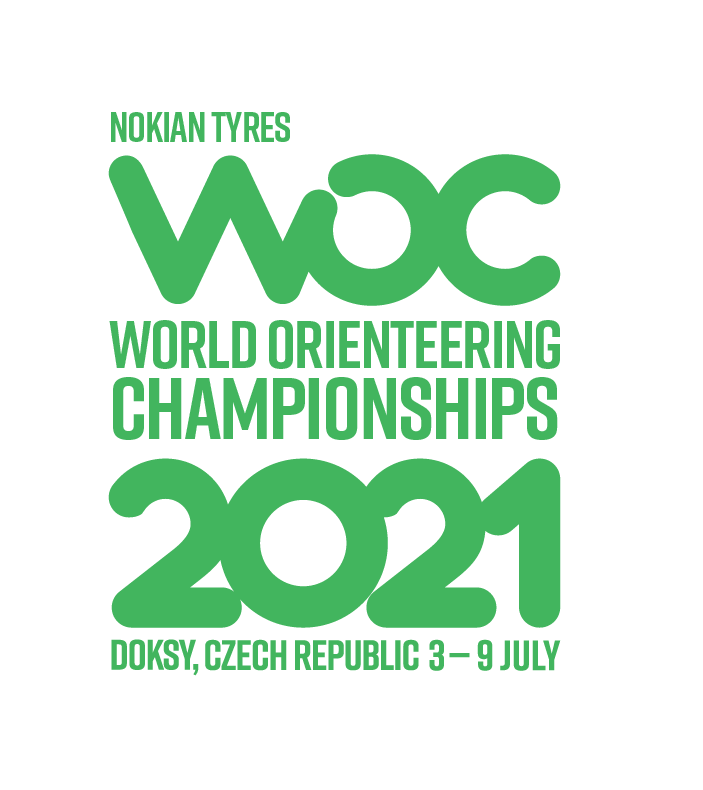Bulletin 2 has been published
Reading the just issued Bulletin 2 might raise many questions. We felt so. That is why we asked the Event Director Jan Picek and the Sport Director Daniel Wolf instead of you. How tough were the discussions about the program extension? Why are there two middle races in one day? What was the background of the selection process of the sprint races venues newly added into the program?
Bulletin 2 has been published, the updated program and the WOC venues have been revealed. The biggest news is the two sprint races added. How tough was it to say: Yes, we can do it all?
Jan: That was pretty tough as many things got complicated by that. The program, our vision, accommodation, logistics but also terrains and locations. If we had known this scenario since the very beginning, we would have most probably chosen also a different competition center. We had to consider the difficulty for the organizing team as well. Originally, we were supposed to organize 4 races, now there are 7 which is almost a double. Last but not least, we had to consider the financial matters as well. The discussion was long and tough, I don´t say everyone was keen since the beginning, including myself. However, in the end, orienteering won. It would be wrong if the world best sprinters were deprived of the medal thrill for 4 years. Our slogan: “competitors first” came true while making this decision.
We are sorry to issue Bulletin 2 this late, at the beginning of September. We started to work on it at the beginning of March and there were still uncertainties, there were lots of complication because of covid-19, there was a change of SEA, program etc. Now we can finally say that everything is clear, checked and all the expected information ready to publish.
Reading the reactions on extending the program on social networks, I think I only saw positive sentiments. Is this also your impression? Have you noticed any criticism on the decision?
Jan: I have to say that I didn´t notice any negative reaction. On the contrary, about 14 days after publishing, I received many e-mails and messages from various places thanking for making this step. I think, the decision we have taken was correct and I believe our team can make it come true on the top level.
The program is really packed, now the athletes have to do both the middle qualification and the final in one day. What were the reasons to do so?
Jan: I think this can be a bit controversial but we stand behind this program. Look: The Sprint Relay and the Opening Ceremonial end on Sunday night in Doksy. It would be very tough to organize a competition on Monday morning (or a bit later) 80km far from there. The athletes would not have enough time for regeneration and especially smaller teams would be forced to skip something. It would also cause problems with accommodation as some of the teams would spend two or three days closer to the locations in Jizerské hory mountains which would be contrary to our agreement with hotels around Doksy. The logistics will be much easier now when we only need to take the long way to Jizerské hory mountains once. There were some voices that the final will be too late and too dark. Now we cannot say, the mountains are unpredictable. However, the time schedule is the same as if there was just one race that day. This is due to the agreement with TV broadcasters and we already know that our time will be late afternoon.
The situation in last half a year was not easy for a long-time planning of big events. You already mentioned that despite this, it was crucial to make some agreements. Did you notice negative reactions? Were the agreements influenced by the situation around covid-19?
Jan: After mid March and in April, lots of negotiations more or less froze. Everyone had other issues to solve. We did not stop the preparations – working on the maps, preparing the courses conceptions, all that was still on. But some of the planned activities had to be either cancelled or postponed. We tried to take it all as positive as possible despite the solely negative news in media. On the social networks and the WOC website we published several games and we noticed high interest in our WOC memory game, that everyone could download and play in the hard times.
We continued the negotiations during May and in June. The reactions of may of the mayors were mostly positive and they were quite happy that they can finally deal with other issues than only the covid-19 situation. Liberecký kraj where most of our activities take place is very sport-oriented and I am very happy that lots of our supporters understand the the best you can do is to keep moving and think positive.
The WOC program was extended but the WOC Tour program remains the same – it starts the second day of WOC. Why did you decide not to change this as well?
Jan: Yes, the program stays the same but still it is very tightly linked to the WOC program. You can see in the program that on Sunday afternoon there will be sprint relays in Doksy and the WOC Tour stage will take place very close. The day before, on Saturday July, 3rd there will only be a WOC race in Terezín. However, we plan to prepare an interesting program for fans also here. The fact that the WOC Tour does not start with the first WOC race is also caused by the accommodation capacities – we are not able to offer accommodation since Friday or Saturday morning. The WOC Tour center in Poslův mlýn will be open since Saturday afternoon.
The WOC organizing team is in charge of this autumn´s Euromeeting as well. Where are you with the preparations and how are these affected by the uncertainty connected with the covid-19 situation?
Jan: Euromeeting preparations have really advanced by now, we have added a sprint race that will be broadcasted live on Czech national TV and we keep negotiating with TV stations from other countries. I truly believe that Euromeeting will come reality. We will state the final decision until October 10th but I think that the first half of September will show how the whole situation develops. Now we already know that we will have to apply some restrictions and respect them. We are in a daily contact with Jiří Funda who is in charge of the medical and hygienic organization of Euromeeting and WOC as well as with the regional hygienic authorities. We added a special site on our website called „COVID-19“ (https://woc2021.cz/covid-19/), where you can find the most up-to-date information and restrictions.
The athletes are heading towards 7 competitions (including the qualifications) in 7 days. Do you think there will be any competitors to do the whole program?
Daniel: I think there will be some athletes but not many. The strong o-nations traditionally nominate athletes to disciplines. However, I believe that thanks to the added day off and longer time for regeneration it will be manageable even for the best ones.
Sprint is new to the WOC program. Was Terezín your clear choice or were there more candidates? Why did you choose this venue?
Daniel: We were considering several towns, each had its pros and cons. Terezín was not a clear choice since the beginning but in the end we decided to go for the “genius loci” of this town with a very special history which is, last but not least, not far from Doksy. If we planned WOC including sprints since the very beginning, we might have chosen other terrains but now we concentrated on the venues to fit our vision and the WOC line we set. Terezín as a small town, very special from orienteering point of view, fits the concept perfectly.
The sprint relays will take place directly in Doksy – a place where o-races are quite often organized. Can they surprise even the orienteers who go there regularly for competitions or training camps?
Daniel: I believe that Doksy has what it takes to surprise. It is not a big or a historic town with narrow streets but it is still a very good terrain for a sprint. It is full of variety and I believe that Radek Novotný as an experienced course setter gets the real WOC courses out of this terrain. I do not think Doksy is too well-known. It is a popular o-destination for competitions and camps but these are held mostly in the forests in the surroundings. There has been not much orienteering in the town itself. As far as I know, there was only one sprint race back in 2013, it was a sprint on a regional level. We have chosen Doksy also because of the good fit with WOC Tour and the ceremonials, it is also good from the logistic point of view as it is close for everyone and we believe that there will be a great atmosphere. It is the host town of the whole WOC and the town officials are very keen on the event so I am happy we will hold one of the races directly there.
You are the sprint course setter. How big challenge is it for you? Is the course-setting process influenced by the relatively late decision about extending the program?
Daniel: It is a big challenge because I have never set a sprint course in a similar terrain but I am really looking forward to that and I believe that it can be a very interesting race. I believe that the process of course setting itself will not be affected by the late decision but everything will be shifted and accelerated. Whereas the forest race courses were mostly ready a year before the WOC and only details have been fine tuned, our work on the sprict races only starts and we will have to “catch” the other races in the preparation status soon. This week we are expecting the first visit from TV broadcasting where we are going to decide the TV concept of the race, in September we will have the map done and during autumn, the courses should be set in an almost-final version. In the spring we will only tune the last details.


